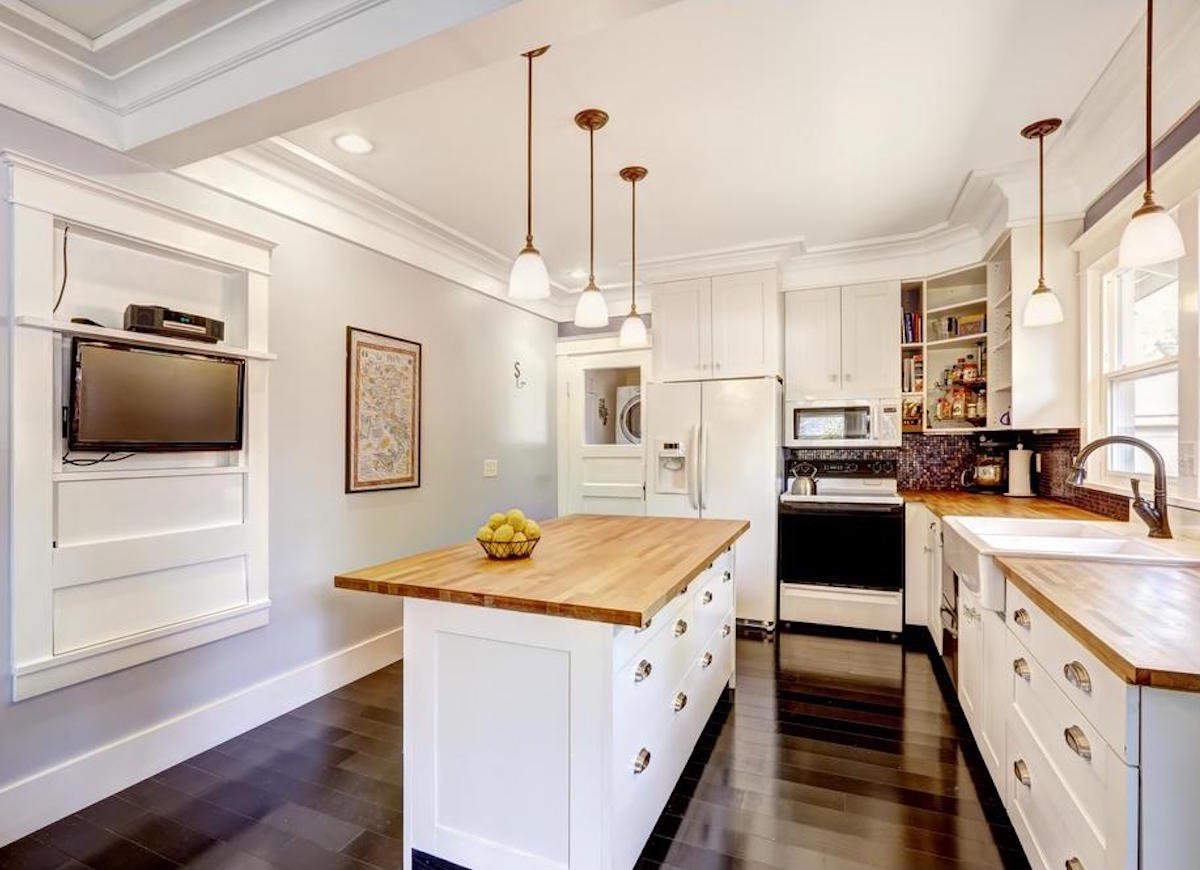Wood countertops, whether they are solid wood countertops, reclaimed wood countertops, natural wood countertops, or even wooden countertops, are a great way to add a bit of character and warmth to your kitchen tables.
There are some considerations like proper waterproofing and choosing the right type of wood.
You will find many types of wood, and each can give you different looking wood kitchen countertops that will create a different atmosphere in your home.
For example, rustic wood countertops fit very well in a traditional kitchen.
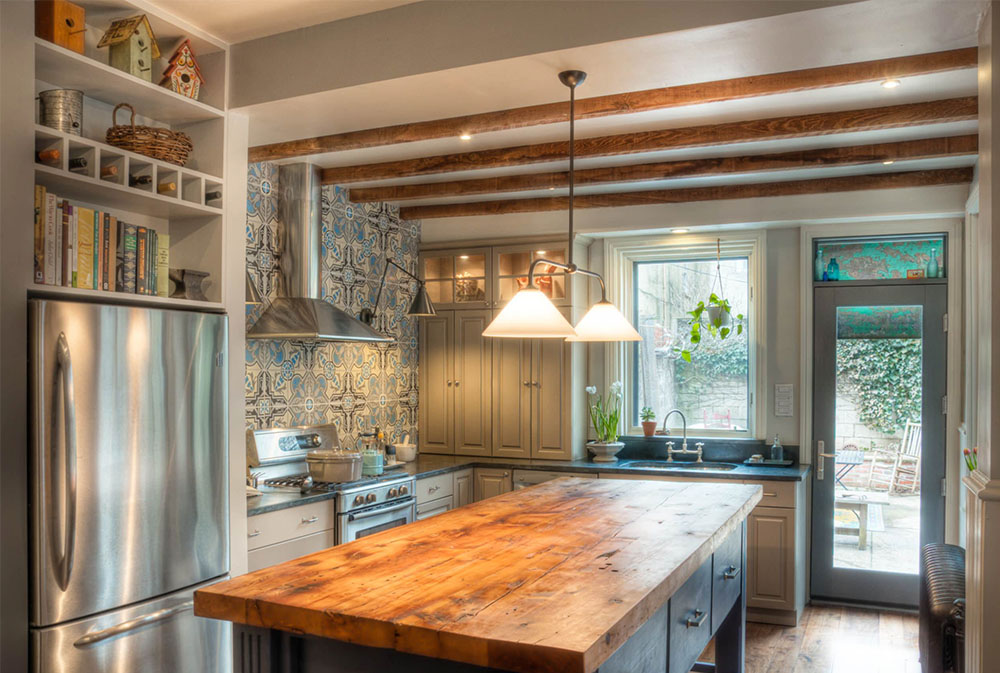
Image source: Buckminster Green
As for the seal, you can either seal it with polyurethane or food grade shellac, or you can live with your worn, well-used countertops, it depends on your tastes.
You’ll have to deal with stains, scratches, and moisture, but you can either rub them or sand them off.
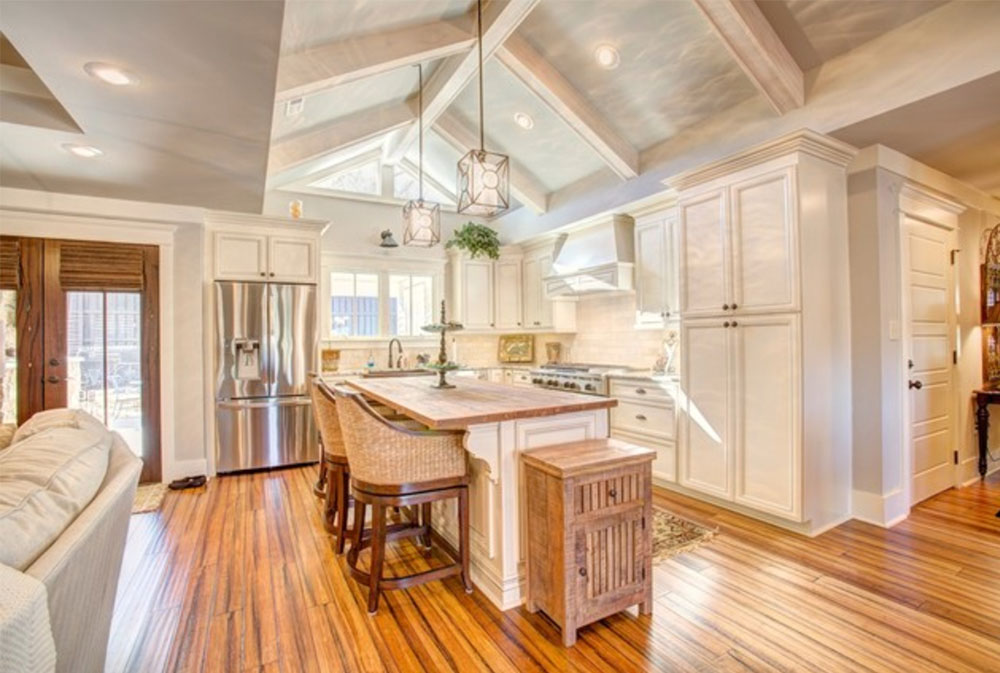
Image source: VTS houses
And in order to remove germs, you need to constantly use disinfectants.
If you choose countertops made of natural wood, oil them regularly so that the wood does not dry out.
Remember that wood contracts and expands with changes in temperature. So if you have something like a leak, its shape can change significantly. So keep that in mind.
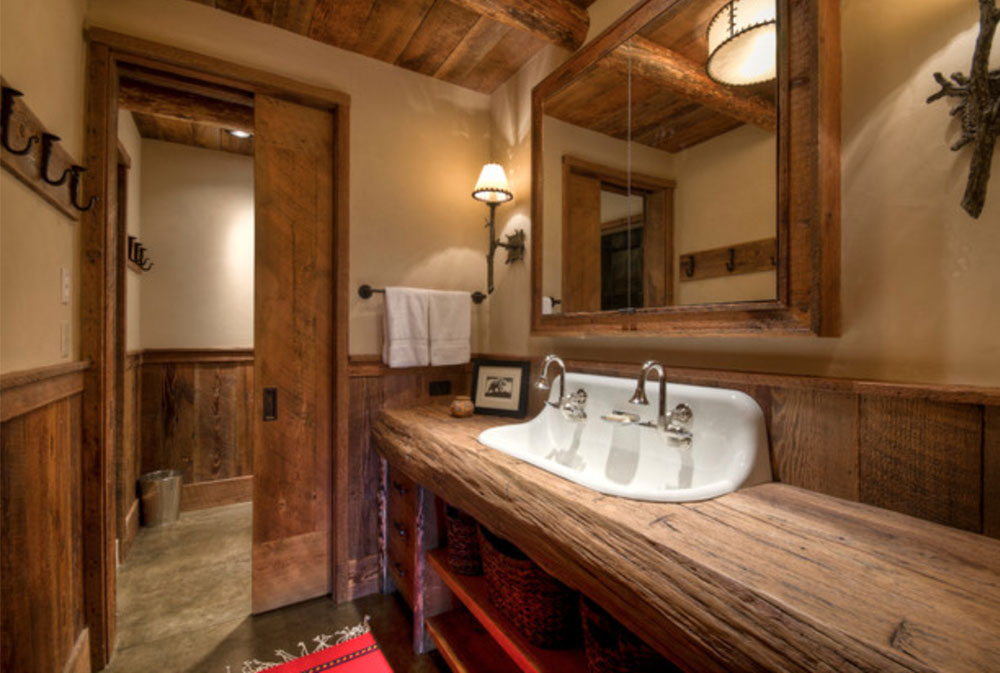
Image source: Laura Fedro Interiors, Inc.
Why get a wood countertop?
- It’s readily available, sustainable, and gives you a sense of comfort.
- It’s quieter to work with as pots or glassware don’t make a lot of noise when placed and they’re also less likely to break.
- There are many finish options, as well as styles and colors.
- You can install it very quickly and seamlessly, which is not the case with marble or stone, for example.
- You can use it for both a traditional and a modern kitchen at will.
- It’s inherently tough and durable. Some species are very resistant to heat, food, and bacteria when well sealed.
- You can sand and damage them to make them look new.
Why not get wood countertops
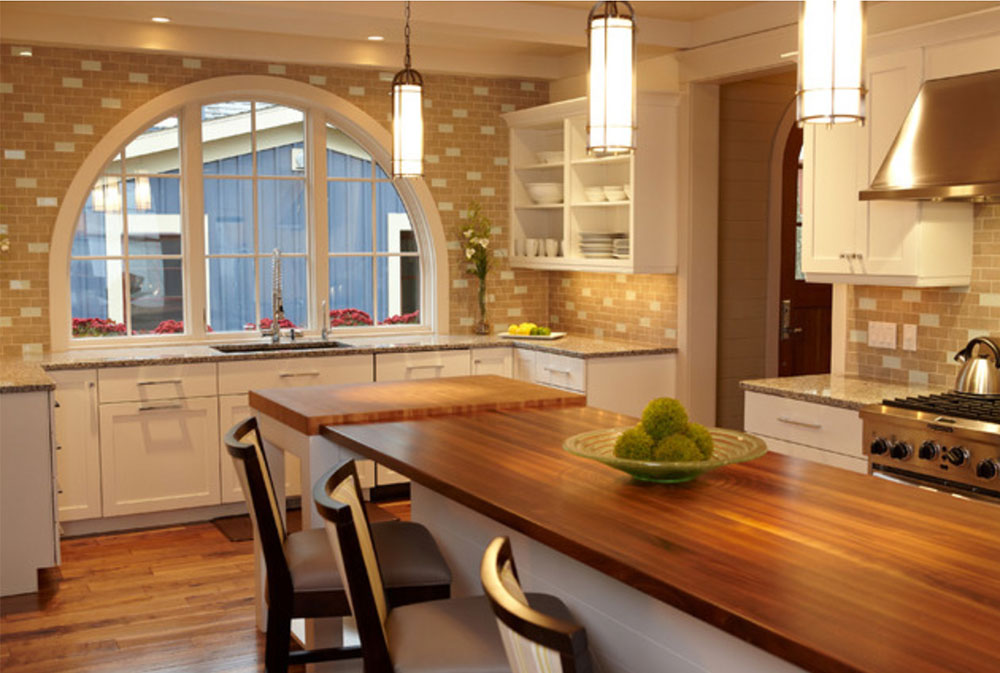
Image source: New urban home builders
They need to be serviced. If they’re not done, they’ll need to be oiled monthly, and a factory-sealed one may need refinishing every few years. Some may appreciate the character, but they inevitably get measured and scratched.
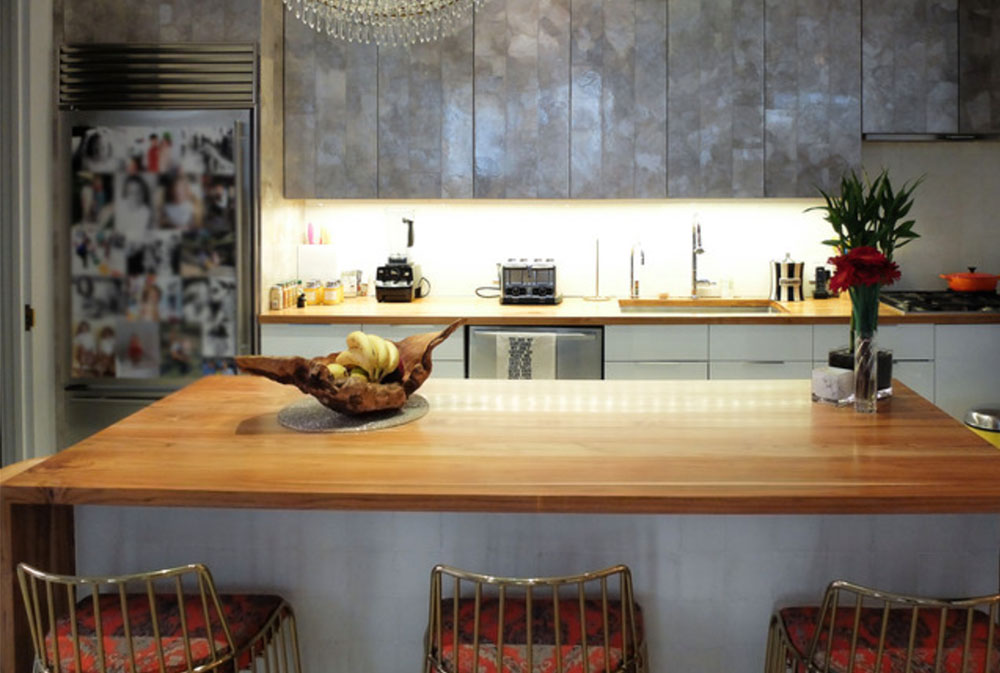
Image source: Studio 4W
Standing water can damage them. Fluid gets through wood and causes cracks, stains and can cause joints to separate. For example, vinegar will dissolve glue, so wipe up any spilled material immediately.
You can burn. So make sure you keep the required clearance with any stove, oven or hob. Use a coaster to make sure you don’t burn them.
The right way to take care of them
You should take care of them and pay attention to them if you really want them to last you for years. For daily maintenance it is sufficient to keep the wood dry and to clean it. A professional carpenter can renovate the wood if you want and it should be oiled every four months.
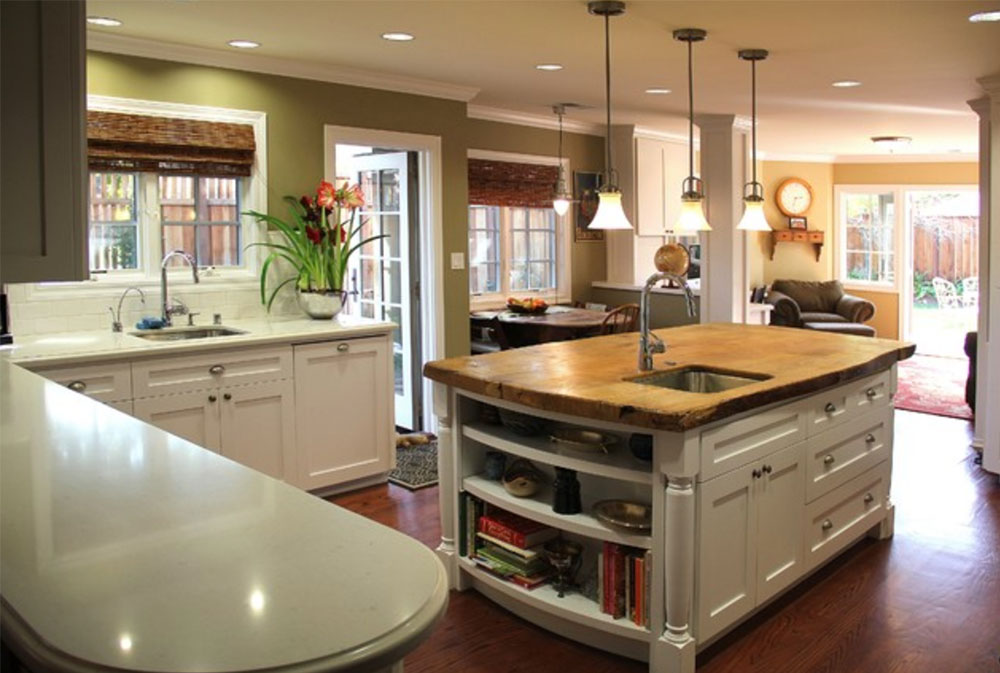
Image source: Madson design
What kind of wood can you use?
The most popular are certainly bamboo and maple, but you will find that many hardwoods work well as a countertop. The look and use, or regional preferences, usually have a lot to do here, and local woods can work as well as some of the most popular ones.
Many reclaimed and FSC-certified woods are also good choices and meet LEED certification guidelines for sustainability. Other woods such as B. softwoods, e.g. B. Pine, are neither suitable nor powerful.
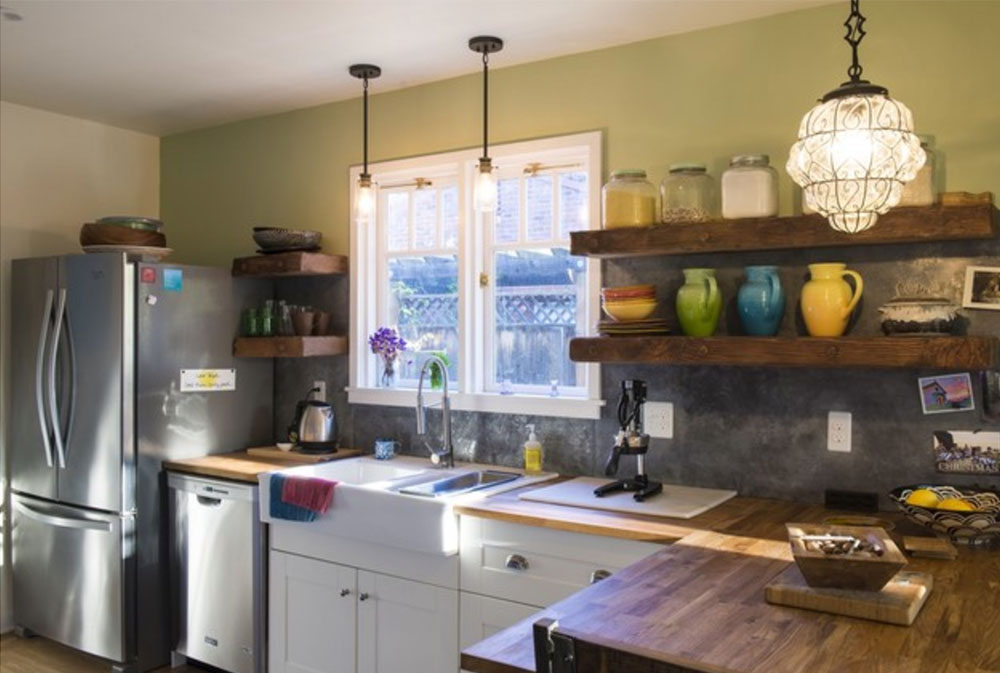
Image source: Stony Creek construction
Style and style
As for style, you have three main styles which are explained below:
- Flat grain, best installed when you want to show off the grain with a stylish look. It is also known as the wide plank style.
- End grain, which is best suited for the preparation of food and which you can also find as a worktop for butcher blocks.
- Edge grain that is extremely stable and best used for a surface counter. Any counter that is considered a marginal grain should be at least one inch thick.
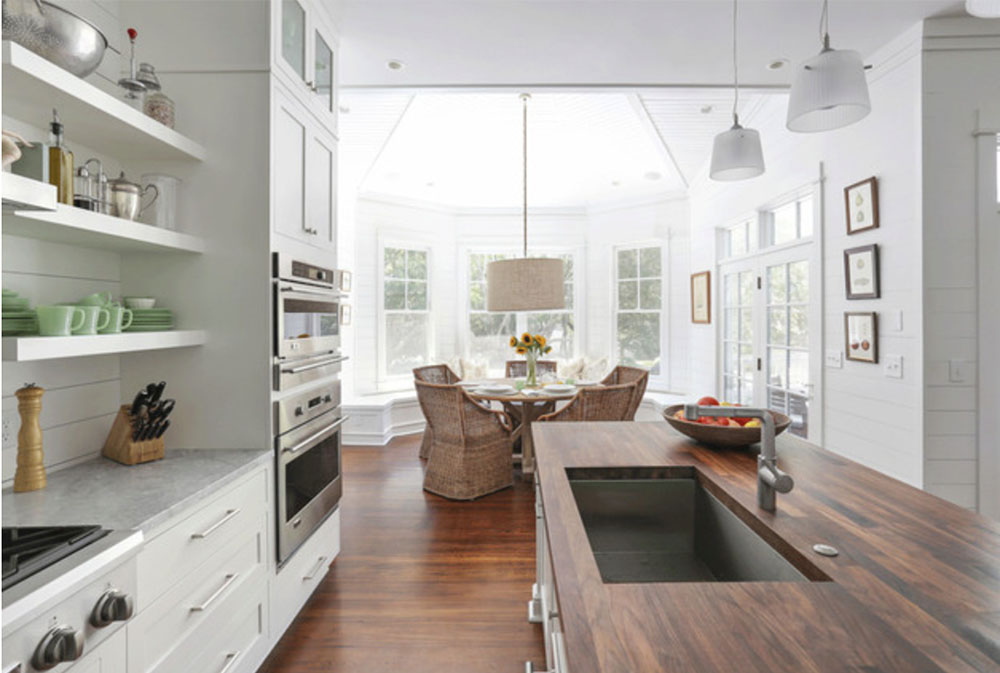
Image source: Diament Builders
Once you have styles out of the way, style matters too. A designer can make a beautiful product out of a variety of trees, and the best way is usually a hardwood. Some of the options include, but are not limited to:
- Bamboo that is robust, environmentally friendly and clean. The first choice for butcher blocks.
- Walnut, which is tough and comes in many colors. Some of your other furniture may also be made of walnut.
- Cherry has a smooth, even finish and can be used on anything from butcher blocks to furniture.
- Wenge is a dense African wood that does not warp when damp and hides knife marks very well. The durability is amazing and is widely used in furniture making.
- Teak is very durable and tolerates moisture well. You can use it for a worktop with edged or end grain.
- Reclaimed wood that gives you many options that have been certified by the Forest Stewardship Council. These materials can be durable, moisture-proof, sustainable, and potentially cheaper than hardwoods.
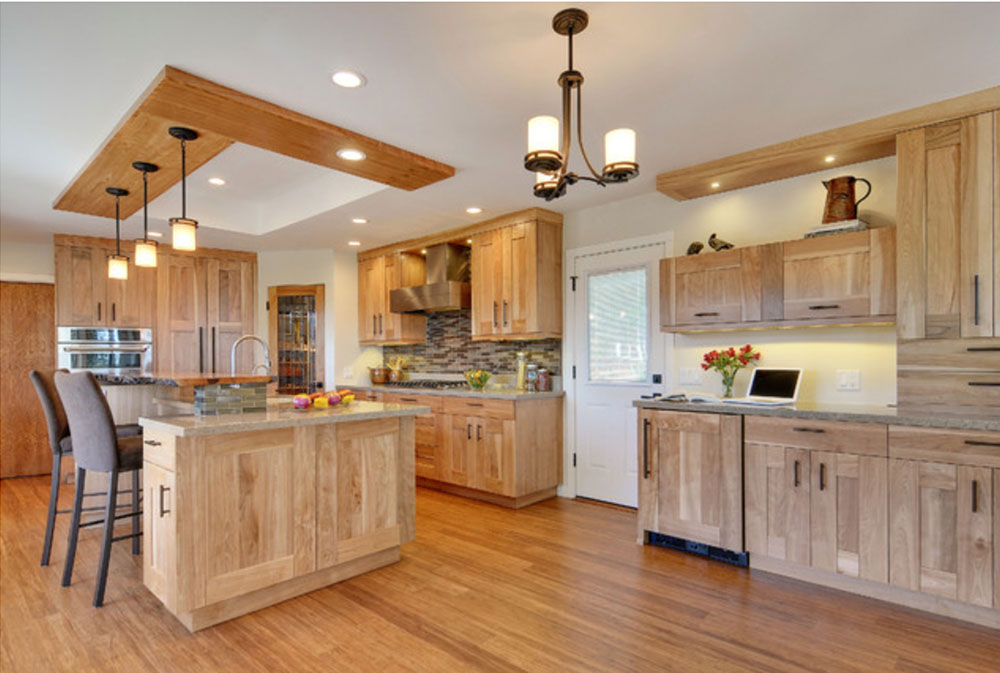
Image source: Remodel West
Why is wood good for a countertop?
The wood is sustainable and readily available. You can get it in many colors, styles, finishes, and shapes too, and it feels warmer than any other comparable finish you can get. You can modify it very easily, it is cheaper and quicker to obtain than solid surfaces like stone. The color and character also improve with age and you can renovate it with ease.
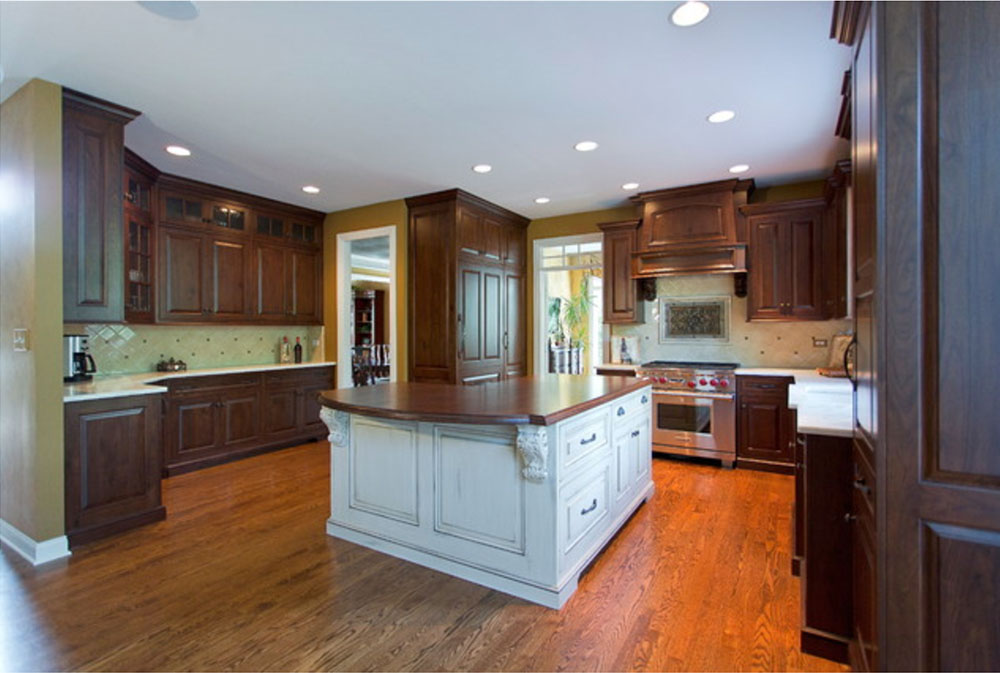
Image source: Vedco Design Group
What about the cost?
A well-made, solid butcher’s block or wood countertop is usually made to order and is made from high quality woods that have been dried and prepared to last. The surfaces should be processed carefully to avoid damage.
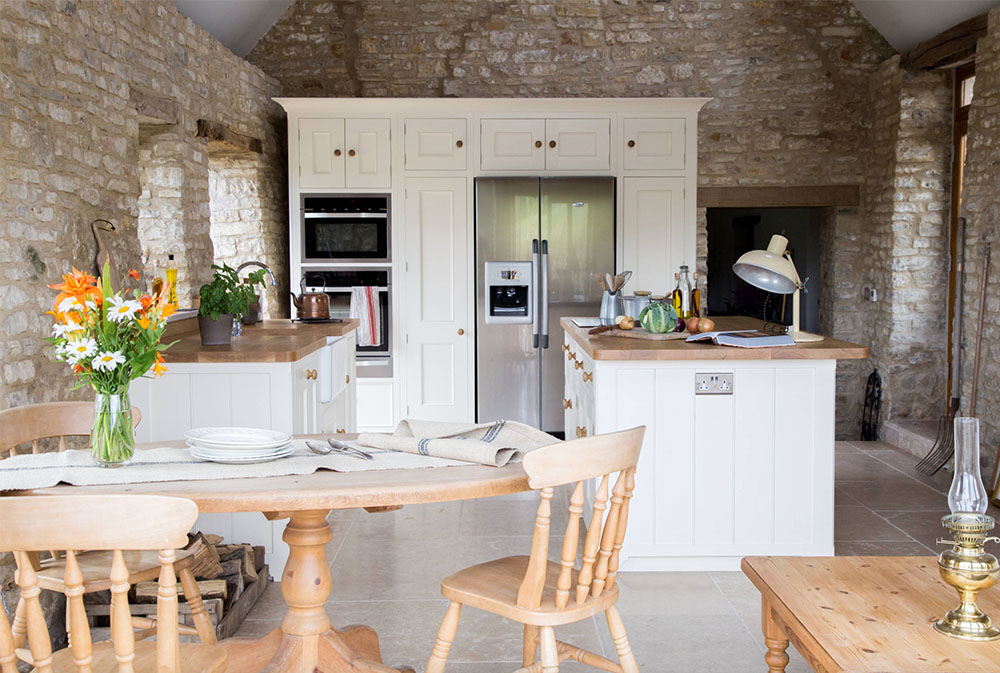
Image source: Sustainable kitchens
The cost of the materials is typically anywhere from $ 50 to $ 100 per square foot, but the price can be higher or lower depending on the location and type. If you would like more detailed information for your particular situation, you should consult a reputable installer.
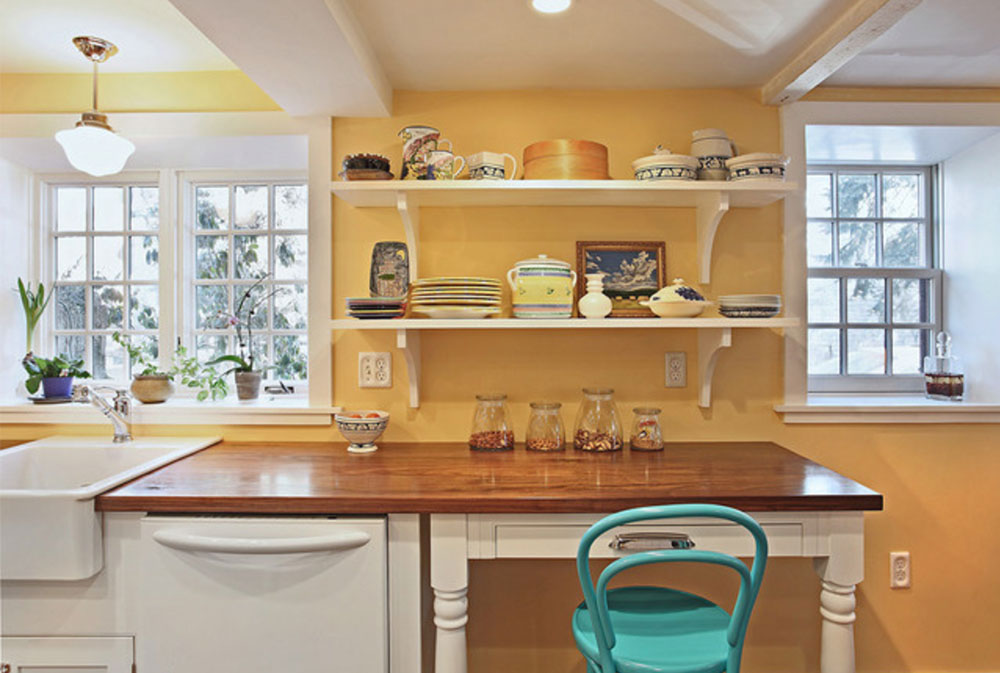
Image source: Luciano Group
What are the price factors?
Since we’ve got the materials out of the way, you should know the other prices as well. In particular, edging can cost up to $ 10 per square foot and coloring can cost up to $ 20 per square foot. There are some popular options when it comes to certain materials.
Maple costs between $ 45 and $ 75 per square foot and walnut costs $ 100 per square foot. A square foot of sebrawood or teak can cost around $ 130, a butcher’s block costs around $ 40 to $ 65, and a wide board ranges from $ 30 to $ 150 per square foot.
What are the other things to consider?
If you want to work with wood countertops, you should have a good understanding of the process and understand why it costs as much as it does. You’ll be using it for a while and it’s a pretty big part of your kitchen. The more durable the wood, the more you pay for it. However, you are investing in something that will last longer and you don’t need to pay as much attention to maintenance as other options.
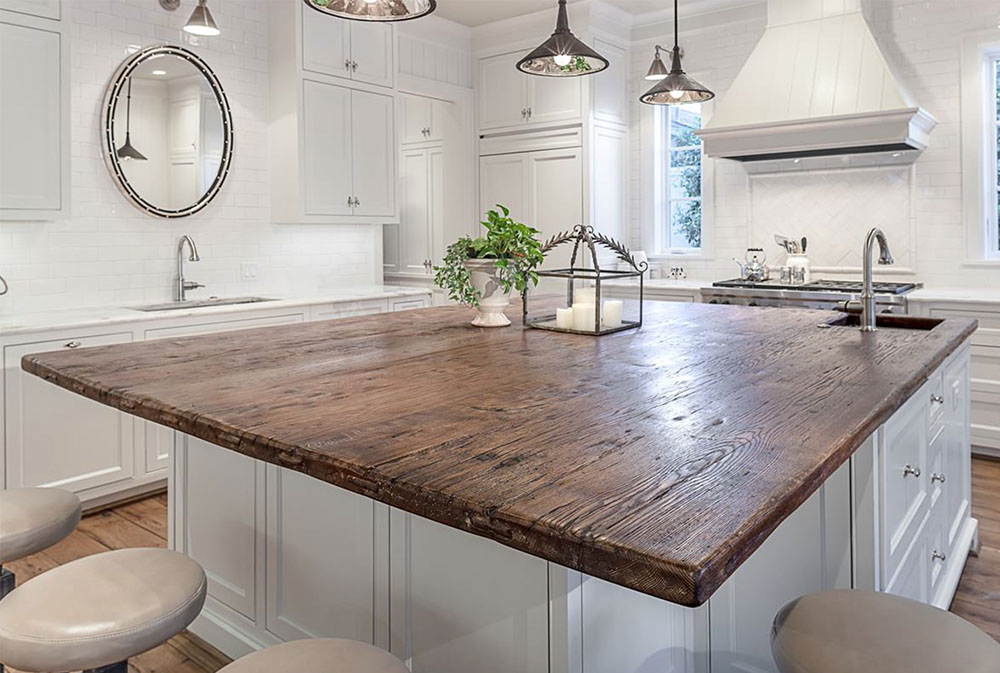
Image source: Carl Mayfield Architect Photographer
Moving equipment and fixtures
When installing new countertops and countertops, consider where your appliances and fittings are. To install the countertop, you may need to remove and reinstall some of them depending on where they are, e.g. B. oven, stove, dishwasher or sink.
sink
To avoid excessive moisture absorption, you should have your sink at least 8 to 10 inches from the wood top. A professional uses an acid-free silicone sealant that prevents moisture from getting into the counter. It should prevent stagnant water from building up on your wooden counter when cleaning your dishes or washing vegetables.
Ovens and ovens
Ovens and ovens are best placed 8 to 10 inches from the joint. You should also have enough space between the front and back of the oven and range to ensure that heat does not damage the counter. However, if your reach was built into the old counter, consider making the cutouts up to a quarter of an inch larger to accommodate the shrinking and swelling of the wood.
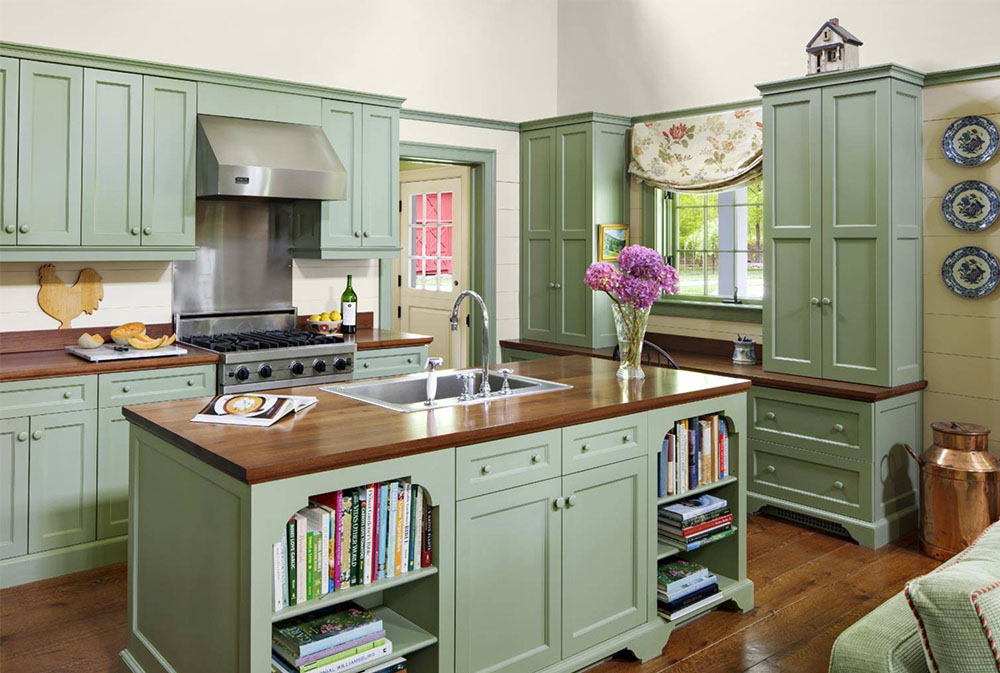
Image source: Rosewood Custom Cabinetry & Millwork
What can you ask your contractor?
If you hire a contractor to do this for you, be sure that they have enough experience with it. Some professionals may be experts at stone or marble, but that doesn’t mean they can handle wood countertops as well. Ask questions. Some of them should include:
- Do you have experience installing wood counters?
- How long have you been installing wood counters?
- Who else is helping you at work and how much experience do you have?
- Which of your previous customers can I call for reference?
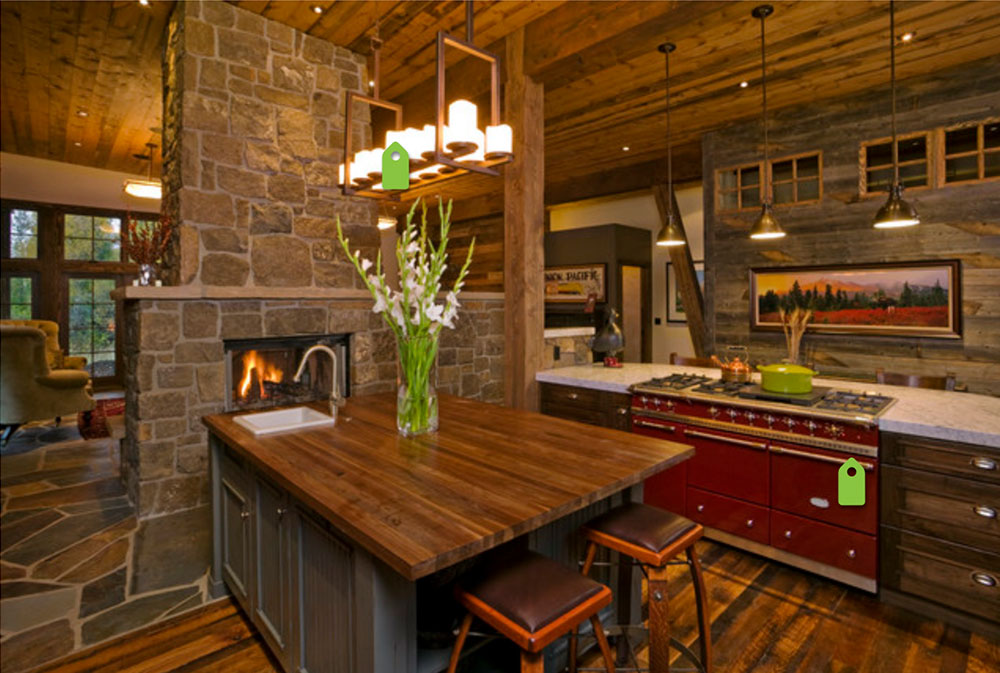
Image source: Mountain contemporary
Summary
When we talk about beautiful countertops, the comfort, warmth and character of wood are hard to beat. But before you decide to go for it, be sure to read the pros and cons discussed above. They will help you make better decisions.
 Flower Love
Flower Love
